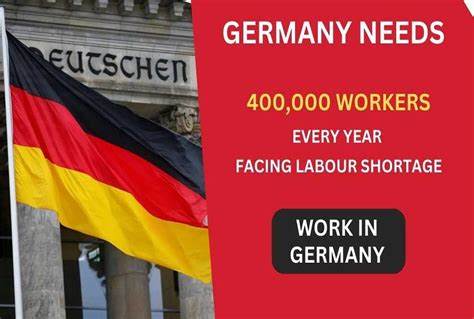Islamabad, Nov 28: A study by the Bertelsmann Foundation reveals that Germany needs 288,000 skilled workers annually to sustain its economic growth, highlighting the nation’s significant dependence on foreign labor. Without immigration, the workforce could decline by 10%, dropping from 46.4 million to 41.9 million by 2040.
Growing Demand for Immigrant Labor
- By 2040, Germany may require up to 368,000 immigrant workers annually to meet labor demands as baby boomers exit the workforce.
- Cities like Hamburg and Berlin, with higher immigrant populations, are less affected, while regions like Bavaria, Baden-Württemberg, and North Rhine-Westphalia are projected to face substantial workforce losses.
Challenges in Attracting and Retaining Immigrants
- Efforts to improve living conditions and simplify migration processes are underway, but dissatisfaction persists.
- A lack of societal acceptance and experiences of discrimination are driving skilled workers away. A Syrian IT specialist shared his struggles with racism and rejection, expressing plans to move to Switzerland.
Key Demographics and Risks
- Germany hosts 12.2 million foreign-born residents, primarily from Europe (8.3 million), Asia (2.7 million), and Africa (647,665).
- The study warns that without a welcoming culture and long-term prospects, Germany risks losing foreign talent, intensifying its labor crisis.
The findings underscore the urgent need for systemic changes to ensure a sustainable workforce and foster inclusivity.
